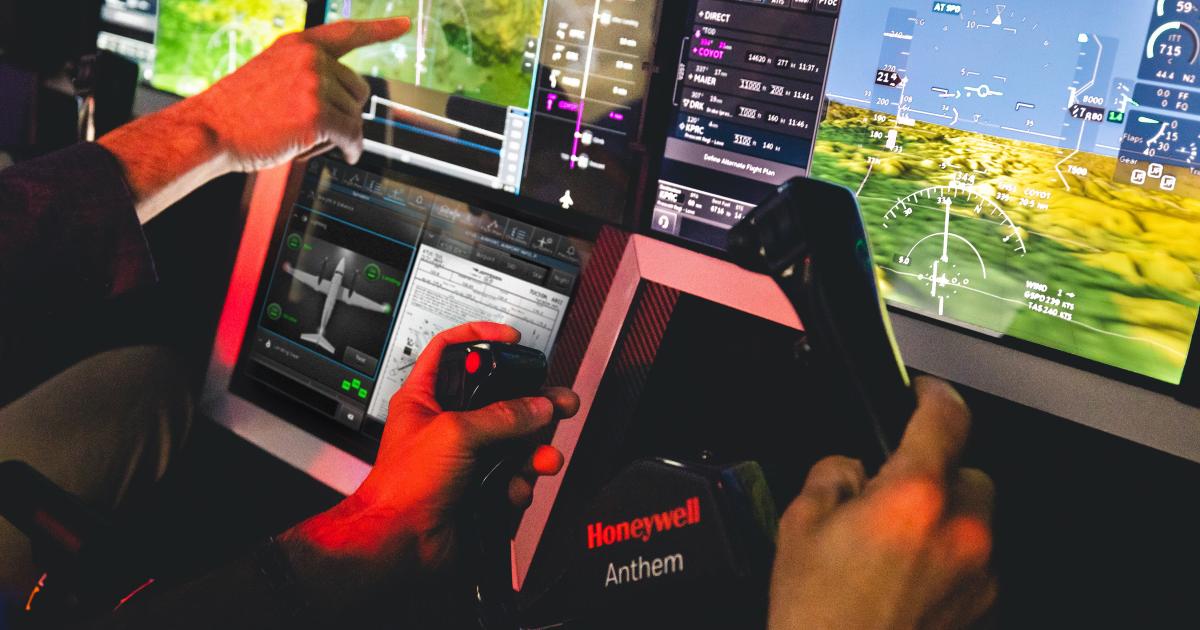Latest FutureFlight Videos
All Videos
FUTURE FLIGHT
Sign up for our free newsletter
News and analysis covering cutting-edge aviation technology and business models, including zero-carbon propulsion, eVTOL aircraft, automation and autonomy, and new infrastructure.
FutureFlight News
FutureFlight
Air New Zealand Steps Up As Possible Early Adopter of Airbus 'Hydrogen Airliners
The Asia-Pacific airline is working with Airbus on a study to define how hydrogen-powered airliners might be integrated into its domestic and regional flight network.
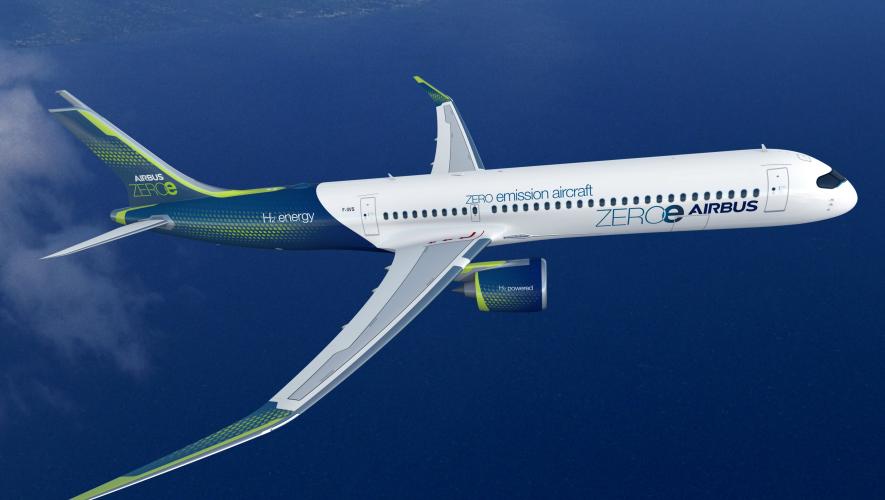
FutureFlight
Clay Lacy Teams with Eviation To Provide Electric Aircraft Recharging Stations
The U.S. business aircraft operator and support company will install electric charging facilities at its chain of fixed-based operations.

FutureFlight
Lilium and Archer Head to Wall Street for Share Flotations
Having completed their mergers with special purpose acquisition companies, two more eVTOL start-ups are going public in New York but both are set to raise less capital than anticipated.

FutureFlight On The Radar
Consortium Seeks to Win British Public Support For Urban Air Mobility
The UK Urban Air Mobility Consortium has published largely jargon-free, plain English guidance to help the general public and other stakeholders better understand the case for supporting eVTOL aircraft operations in cities.
FutureFlight
CAE To Provide Pilot and Mechanic Training for Beta's Alia 250 eVTOL
The aviation training group is now partnering with three eVTOL aircraft developers, including Beta Technologies, Jaunt Air Mobility, and Volocopter.
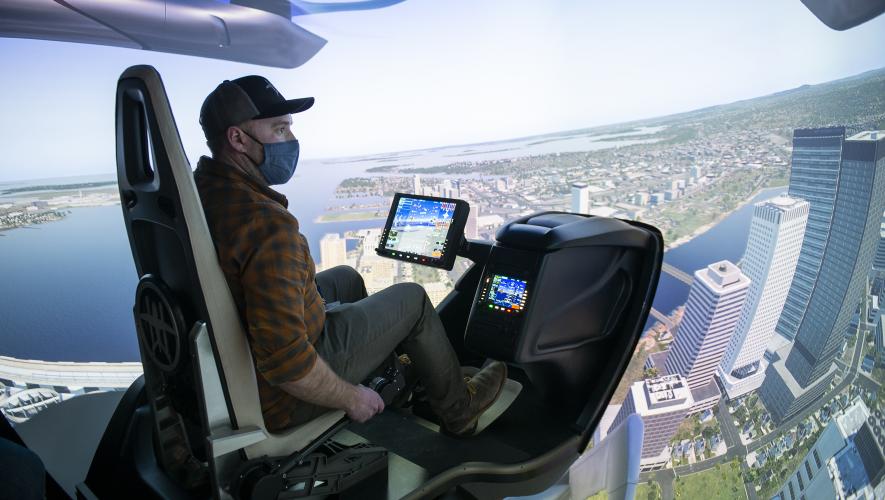
FutureFlight
Investors Back Urban Aeronautics's Hydrogen eVTOL Plans with $10 Million Funding
The Israeli company has raised the first $10 million towards a Series A funding round goal of $100 million, with support from investors in Israel, the U.S., and Brazil.

FutureFlight
Lilium Set for Nasdaq Listing as Qell Shareholders Approve SPAC Merger
The German eVTOL aircraft developer's anticipated Nasdaq listing on September 15 is expected to yield around $584 million in funds for its efforts to bring the seven-seater Lilium Jet to market in 2024.

FutureFlight
Vertical Aerospace Boosts Team with Infrastructure and Marketing Leaders
The UK eVTOL aircraft developer has recruited a former senior executive from London Heathrow Airport and a branding expert who previously worked with rival Lilium.

FutureFlight
Vertical Says Strategic Backing and a Robust Approach to Certification Give Its eVTOL a Clear Flight Path
As it heads for an initial public offering, the UK-based start-up says the caliber of its seasoned aviation strategic backers will put it among the few eVTOL contenders to make it to market.
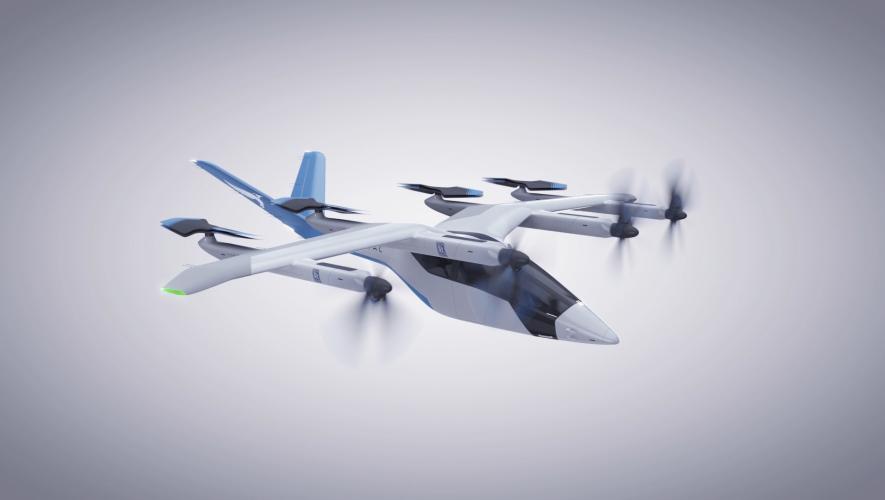
FutureFlight
Paragon Aerospace Reboots Its Hydrogen VTOL Project in Texas
The start-up is working to develop a hydrogen-powered VTOL aircraft called the Soar, having abandoned plans for a model called the T-21 Raptor.

FutureFlight
FAA Approves G-1 Certification Basis for Archer's eVTOL Aircraft
Now Archer is working with the U.S. aviation safety regulator to agree on the means of compliance to meet the requirements contained in the G01 certification issue paper.

FutureFlight
Wright Advances Powertrain Tests For Planned All-Electric Narrowbody Airliner
Wright Electric aims to develop an all-electric airliner with capacity similar to that of 190-seat Airbus A320 twinjets and to have this ready to enter service by 2030.

FutureFlight
Samad Says Deliveries of eStarling Cargo Aircraft Will Start in Late 2022
The UK company has begun the certification process for its all-electric eStarling Cargo aircraft, which is a scaled-down version of its hybrid-electric five-passenger vehicle.

FutureFlight
UKRI Invites Entries For Phase 3 of Future Flight Challenge
With UK government funding, the competition is offering grants to support projects aimed at advancing, “integrated aviation systems and underpinning technologies that enable new classes of electric or autonomous air vehicles.”

FutureFlight
Helicopter Veteran Seeks Leading Role in Advanced Air Mobility Revolution
Having operated helicopters for more than 70 years, Bristow is planning to add eSTOL and eVTOL aircraft to its fleet and wants to partner with manufacturers to support the rollout of advanced air mobility.

FutureFlight
EHang's EH216 eVTOL and Falcon Drone Perform Flight Trials in Europe
The flights from Tartu Airport in Estonia were intended to demonstrate autonomous Beyond Visual Line of Sight operations for both passenger and cargo services.

FutureFlight On The Radar
Xwing Seeks FAA Clearance for Commercial Remotely Piloted Flights
The company is looking to certify its autonomous flight technology on commercial cargo operations flown by its subsidiary company, San Antonio Air Charter.
FutureFlight
Tetra Aviation's Mk 5 Personal eVTOL Starts Flight Testing
The Japanese start-up is conducted unmanned flight tests at Byron Airport in California as it prepares to begin delivering kit-built versions in late 2022.

FutureFlight
Microflite Teams With Eve to Advance eVTOL Air Taxi Services in Australia
Embraer's urban air mobility division Eve and Microflite would begin eVTOL operations in Australia in 2026 under a new partnership agreement.
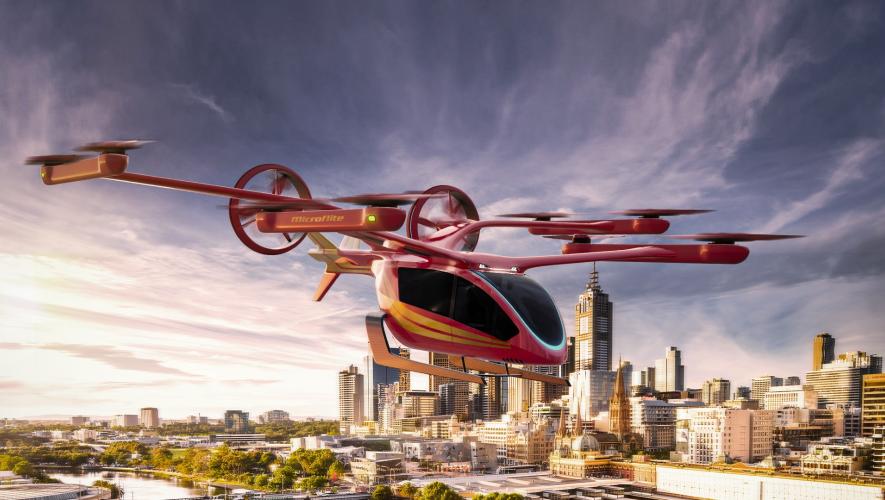
FutureFlight
Electra Pursues Applications For Its eSTOL Aircraft in Australia
The U.S.-based manufacturer is partnering with advanced air mobility infrastructure developer Skyportz to explore the potential for urban and regional services carrying passengers and freight.




